THE FIJI BANDED IGUANA IS ENDANGERED, BUT WHY?
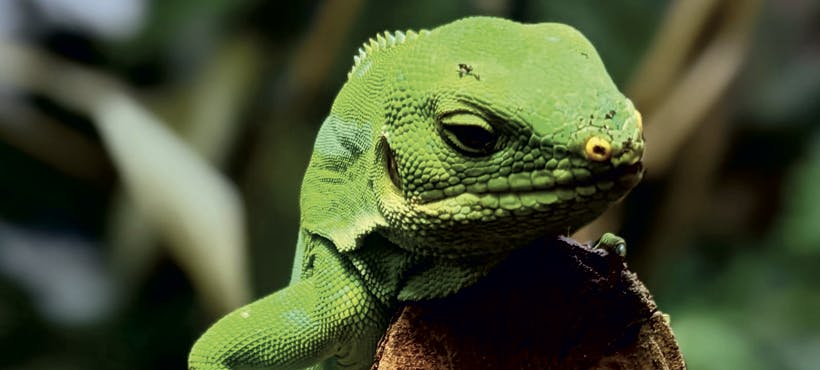
Have you met Plantasia Tropical Zoo’s very own Fiji Banded Iguana?
He can be found greeting you with his wide bright blue and green stripes and a very long tail. This article will tell you a little bit more about these fascinating unique animals, with an explanation on how and why they are endangered in their natural habitat.
It’s all about the Fiji Banded Iguana:
The Fiji Banded Iguana (Brachylophus bulabula) is a type of reptile iguana with an endangered conservation status, mostly due to human interference. They are naturally found in shrubland, wet and moist forests, coastal swamps and rocky areas of the Fijian islands, but have also been introduced to Vanuatu. In the wild they have an average lifespan of around 10-15 years, however, in captivity they have been known to live up to 25 years.
So what do they look like?
They have bright green and blue stripes with a crested spine and long tail, which helps them to balance whilst climbing trees. The difference between males and females is that males have wider blue or green stripes along their body and females usually have solid green with a few white or pale blue spots. Their long tail helps them reach a length of about 60-80 centimetres. Fiji banded iguanas also have distinguished reddish-orange eyes and yellow nostrils.
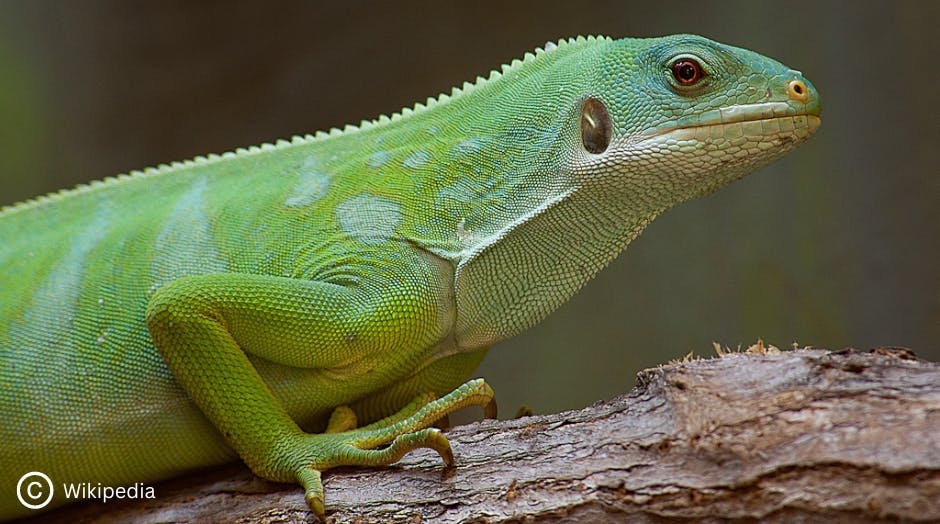
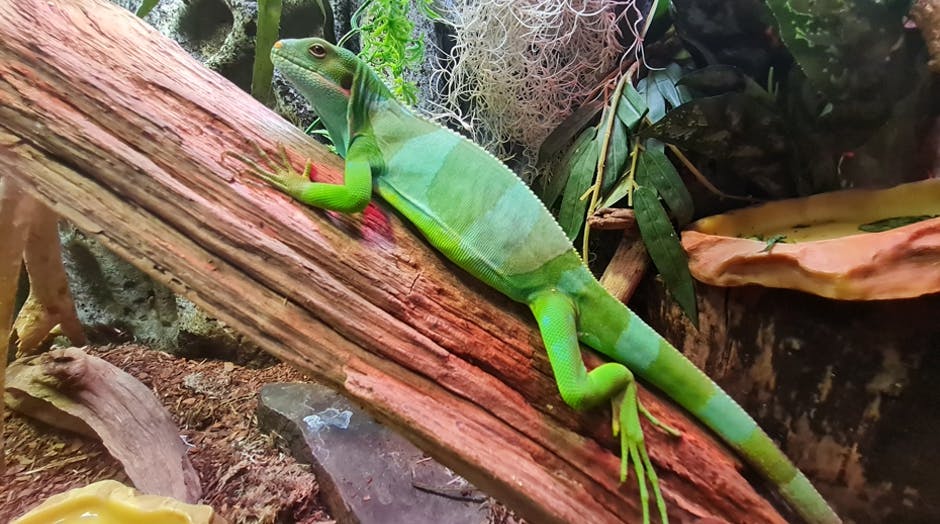
Do they behave in a certain way?
Fiji banded iguanas are arboreal and great climbers, they typically like to spend most of their time in the trees, manoeuvring around by overlapping branches. When threatened by predators they turn black and to intimidate other males they bob their heads.
But what do they like to eat?
They will typically eat anything from leafy greens to flowers, and fruit, foraging throughout the day. They are herbivorous, but have been known to sometimes eat insects. Our Fiji Iguana loves hibiscus flowers and lettuce
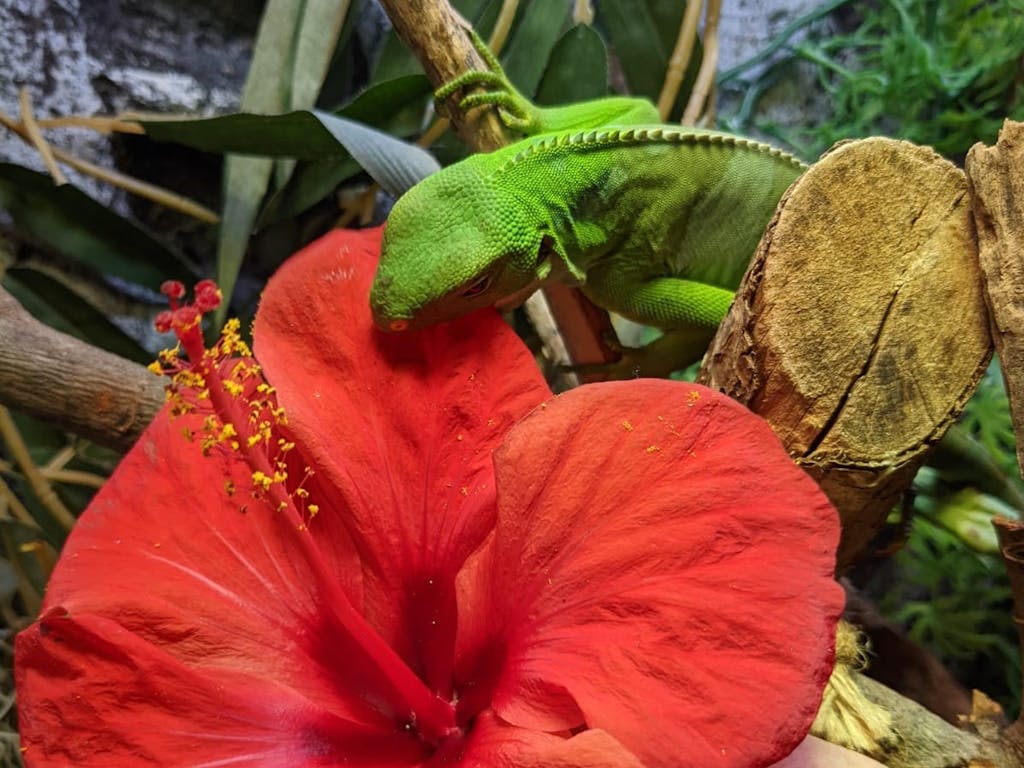
So, why is the Fiji banded iguana under threat?
Scientists have estimated that the total number of Fiji Banded Iguanas in the wild is around 13,000, after a huge 50% decrease in the last few decades. They have therefore been classified as endangered since 1966 by the IUCN (International Union for Conservation of Nature). Here are four main reasons for this sudden decrease.
- Habitat loss and introduction of new species – due to fires, storms, agriculture development and competition from introduced goats and pigs eating the native trees, their habitat is being destroyed and taken over. Due to them preferring to inhabit dense, undisturbed forests it has become increasingly difficult for them to find suitable places to live and survive. Therefore this is one of the main reasons why their decrease in numbers has been so dramatic.
- Introduced predators – Rats, mongooses and feral cats all prey on Fiji banded iguanas and their eggs, decreasing their chances of survival.
- Illegal animal trade – these iguanas are being hunted and caught for illegal purposes such as a food source and to be traded onto the illegal pet trade.
- Urbanisation – clearing of the forest (deforestation), fires and use of the land of coconut plantations, gardens, grassland and tourist resorts also result in their loss of habitat.
They breed very well in captivity, so much that many current zoo’s have introduced breeding programs to help increase their numbers. At the moment they are only considered endangered, however if they become critically endangered at any point in the future, then captive-bred Fiji iguanas will most likely be reintroduced into the wild.
What’s being done to help?
Removal of feral goats in certain areas has helped increase the forest area by 10-20% since 1980. Helping increase the amount of resources and natural habitat for the Fiji Banded Iguana. However at the moment that is the majority of what is being done to help, including many breeding programmes taken by zoo’s.
Fascinating facts…
- This species of iguana are considered a national treasure in Fiji where they are featured on their stamps, currency and phone book covers.
- These iguanas are known to be one of the most intelligent reptile species, they have the ability to remember and recognise items. Fiji Banded Iguanas possess a shared memory and excellent recognisable skills, responding to their owners through sight and sound.
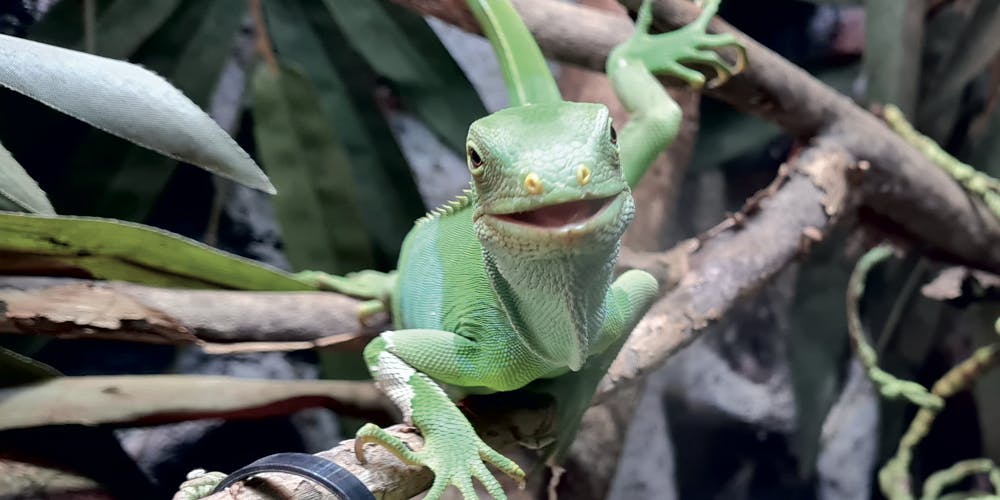
We hope you enjoyed learning about our amazing, spectacular Fiji Banded Iguana, and we hope you come and visit him here at
Plantasia Tropical Zoo soon!
By Madelyn Jones, Swansea University Zoology placement student
